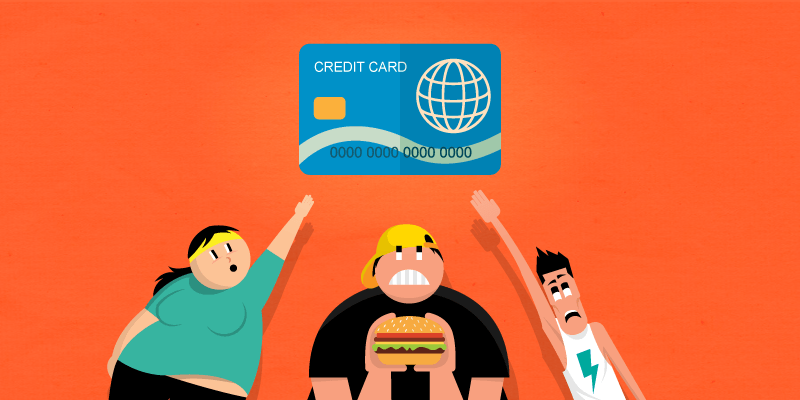So how do credit cards really work?
Feeling stumped?
Well, if you’ve ever been inside a casino and played at the roulette table, you already know. You go for it thinking it’s a cool way to burn the moolah, but before you know it, you’re limping all the way to the bank with a bruised wallet.
We kid you!
In any case, if you’re ever in doubt how you can go wrong with credit cards, see 5 reasons why you spend more with your credit card.
Now, back to the question. Have you ever wondered how the whole concepts of credit cards actually work?
Read on.
How do credit cards work?
You have been issued a credit card from one bank and you are purchasing a product from a merchant who may not have any association with your bank. So how the whole processes of credit card payments work?
Credit cards are essentially payment instruments, just like loans, offering you a personal credit. Credit cards allow you to undertake any number of transactions up to a maximum credit limit. The credit limit of each individual is fixed based on his income.
So every time when you are making a purchase using your credit card, you are effectively borrowing money from the bank until you pay it back within the stipulated holiday period.
This means if you hold multiple credit cards, you’re actually borrowing money from multiple sources. Not a good thing!
If you want to know if multiple cards are the thing for you, read this article: Multiple Credit Cards and You: A Match Made in Heaven?
Credit card companies offer an interest free window where no interest is charged, if you repay the amount borrowed within the stipulated time period. This period varies from card to card and from bank to bank, and typically is between 20 to 45 days.
Read How the interest free period is calculated in credit cards.
If the payments are delayed beyond this period, the card company adds an interest to the due amount, along with penal charges, depending on your card and as per the pre-agreed terms.
How banks reconcile the payments made through cards?
Let us assume that you have an SBI credit card (see if your card has made it to the Top 7 Credit Cards of 2015), which you have used to purchase a Smartphone worth Rs. 20,000 from a Samsung showroom. Let us assume that the merchant here has a credit card machine given to him by HDFC bank. When you swap your card with the merchant, the machine receives the information from the card and sends it to the network provider -MasterCard or Visa (just like your phone connecting you with someone through a network, when you dial the number).
The network provider in seeks validation from SBI and after approval the financial transaction will be given a go ahead to the merchant. The machine then prints a purchase receipt, which is given to you. One copy of the receipt, duly signed by the customer is kept with them.
SBI transfers the amount to the merchant’s account by the end of the day, through their network provider. The network provider charges a fee for this facilitation from both banks.
Charges associated with card payment processing:
For using the swiping machine, HDFC bank charges the vendor a fee known as the merchant discount fee. The merchant discount fee is usually 2% of the total transaction cost. This is charged because it gives the merchant an extra advantage of having buyers with a credit card to purchase from the store. Some vendors pass this amount to the card holder to compensate their expenses.
So in this case, HFDC bank will deduct 2% of Rs 20,000 which comes to Rs. 400 from the vendor. The remaining amount of Rs. 19,600 is passed on to the vendor once it is received from the cardholder’s bank.
Now, SBI will pay the amount of Rs. 20,000 to HDFC bank, after deducting the interchange transaction fee of 1% for the transaction. So SBI charges HDFC Bank 1 % of 20,000 which comes to Rs. 200 and pays the remaining amount ( ie, Rs 19,800) to HDFC Bank.
So effectively for a 20,000 credit card transaction, SBI earned Rs. 200, HDFC Bank earned Rs. 200 and the merchant had to pay Rs. 400.
Other ways how banks benefit from credit cards:
As discussed in the above example, banks earn money when you undertake any credit card transaction, depending on the amount of transaction. Apart from this fee, banks earn money as interest rate as and when you make a delayed repayment for the amount borrowed. Besides these, banks also earn several other fees from cards like joining fee, annual fee, fee for cash advance, processing for EMI repayment option, overseas transaction charges, etc
Today we cannot imagine a life without credit cards. It not only sounds cool to carry just this plastic instead of cash, swipe it for all your purchases, and even some perks for using them!
Now that you know how a credit card works, is it a better option to play the roulette? Or is it back to gool ol’ swiping?
